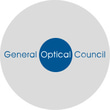- OT
- Professional support
- Optical organisations
- CET to CPD: The timely transition
Perspectives
CET to CPD: The timely transition
The GOC’s Natalie Michaux on the education changes that are coming on 1 January 2022
03 December 2021
The face of optics is changing. Optical professionals are working in increasingly diverse scopes of practice, the technology at our fingertips is ever-expanding, and our understanding of patient needs is increasing. The initial education of budding optometrists and dispensing opticians is also changing to meet the demands of modern-day practice as part of the Education Strategic Review.
It makes sense then, that what the General Optical Council (GOC) expects of registrants, in terms of learning ‘post-qualification,’ should reflect the evolution of the sector.
Some registrants have been telling us for a while that CET can feel somewhat like a tick-box exercise, with the same requirements needing to be fulfilled no matter what context they work in. Others have told us that they’d love to learn new things but feel stifled by the requirements of the CET scheme, which focuses on maintaining existing skills rather than developing new ones. Enter Continuing Professional Development (CPD), the replacement for CET.
CPD is more than just a name change: it represents a philosophical shift in what post-qualification learning should look like
What’s in a name?
CPD is more than just a name change: it represents a philosophical shift in what post-qualification learning should look like. It is a framework to make sure that all registrants are maintaining their existing skills, whilst having the flexibility to tailor their learning to current and future practice, career aspirations and professional interests.

Registrants will be able to obtain points for relevant learning that comes from sources outside optics ¬– we’re calling this ‘self-directed CPD.’ The research master’s degree you undertook; the data protection course you went on; the leadership programme you’re part of; the EDI webinar you attended: any and all of these will be eligible to count for CPD points.
Registrants will still need to complete CPD in four ‘core domains’ (a minimum of one point in each), and collect at least 18 points from learning delivered by GOC approved providers. But otherwise, you can tailor the scope of your CPD to your own learning needs and goals.
The four core domains under CPD also allow a greater variety of learning than the CET competencies, requiring registrants to undertake learning that focuses on ‘soft’ as well as clinical skills. Learning more about professionalism, leadership and communication are vital tools to help the optical professional navigate the complexities of practice and provide safe care to patients.
It’s all very well providing excellent clinical care, but if a patient doesn’t feel their needs have been met, or they haven’t really understood what the results of their sight test mean, safety might be negatively impacted. CPD aims to help avoid this.
Optical professionals are working in increasingly diverse scopes of practice; the technology at our fingertips is ever-expanding, and our understanding of patient needs is increasing
Reflection matters
We’re also requiring registrants to do a reflective exercise towards the end of the CPD cycle, looking at what they have learnt, what they plan to learn and how their professional practice has changed. We will give registrants a template that they can use to do this, or they can upload documentation of one they’ve undertaken with their employer or as part of their NHS role. We know reflection can be polarising, but the benefits of it are countless: thinking about what you have done and what you might do differently in future helps you to continuously improve the care you provide.
More information about the move to CPD will be published by the GOC over the next few months, including webinars and guides, so keep an eye out for these and make sure you’re as informed as you can be.
About the author
Natalie Michaux is standards manager and CPD review lead at the General Optical Council (GOC)



Comments (0)
You must be logged in to join the discussion. Log in